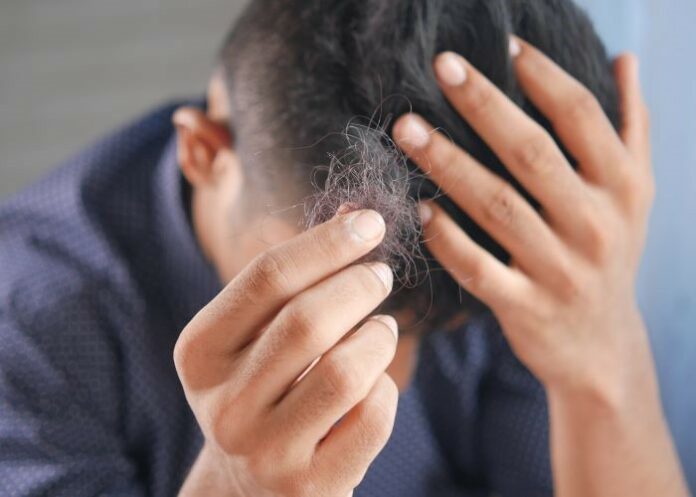A single chemical could be responsible for whether people go bald or not, a recent study has found, the discovery of which could not only treat baldness but expedite wound healing.
In the UK, two thirds of men will face male pattern baldness, reports The Independent.
The researchers at the University of California, Riverside, found that just one sole chemical is responsible for hair follicles dividing and dying.
In the study published in the Biophysical Journal, study co-author Qixuan Wang said: “In science fiction when characters heal quickly from injuries, the idea is that stem cells allowed it.
“In real life, our new research gets us closer to understanding stem cell behaviour, so that we can control it and promote wound healing.”
The team looked at hair follicles as these are the only human organ that regenerates regularly and automatically, and discovered that a type of protein called TGF-beta controls how the stem cells in hair follicles divide and why some can die off.
Wang said: “TGF-beta has two opposite roles. It helps activate some hair follicle cells to produce new life, and later, it helps orchestrate apoptosis, the process of cell death.
“Even when a hair follicle kills itself, it never kills its stem cell reservoir. When the surviving stem cells receive the signal to regenerate, they divide, make new cell and develop into a new follicle.”
However, the scientists found that when a hair follicle dies, the stem cell reservoir still remains.
“When the surviving stem cells receive the signal to regenerate, they divide, make new cells and develop into a new follicle,” Wang said.
The study authors added that it may be possible to stimulate hair growth by activating follicle stem cells, but more research on the subject needs to be done.
Study details
A probabilistic Boolean model on hair follicle cell fate regulation by TGF-β.
Katherine Dinh, Qixuan Wang.
Published in Biophysical Journal on 16 June 2022.
Abstract
Hair follicles (HFs) are mini skin organs that undergo cyclic growth. Various signals regulate HF cell fate decisions jointly. Recent experimental results suggest that transforming growth factor beta (TGF-ββ) exhibits a dual role in HF cell fate regulation that can be either anti- or pro-apoptosis. To understand the underlying mechanisms of HF cell fate control, we develop a novel probabilistic Boolean network (pBN) model on the HF epithelial cell gene regulation dynamics. First, the model is derived from literature, then refined using single-cell RNA sequencing data. Using the model, we both explore the mechanisms underlying HF cell fate decisions and make predictions that could potentially guide future experiments: 1) we propose that a threshold-like switch in the TGF-ββ strength may necessitate the dual roles of TGF-ββ in either activating apoptosis or cell proliferation, in cooperation with bone morphogenetic protein (BMP) and tumor necrosis factor (TNF) and at different stages of a follicle growth cycle; 2) our model shows concordance with the high-activator-low-inhibitor theory of anagen initiation; 3) we predict that TNF may be more effective in catagen initiation than TGF-ββ, and they may cooperate in a two-step fashion; 4) finally, predictions of gene knockout and overexpression reveal the roles in HF cell fate regulations of each gene. Attractor and motif analysis from the associated Boolean networks reveal the relations between the topological structure of the gene regulation network and the cell fate regulation mechanism. A discrete spatial model equipped with the pBN illustrates how TGF-ββ and TNF cooperate in initiating and driving the apoptosis wave during catagen.
The Independent article – Scientists find potential ‘cure’ for baldness (Open access)
See more from MedicalBrief archives:
Osteoporosis drug found to stimulate hair follicle growth
Scalp cooling reduces hair loss in breast cancer chemo patients
BRAVE trials show that baricitinib can slap down alopecia
Baldness ‘a perfect predictor’ of higher risk of severe COVID-19 – Research letter

